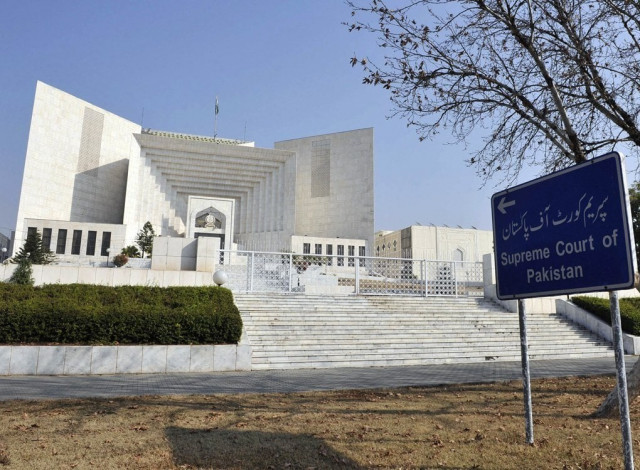'Supreme Court should exercise caution on advisory jurisdiction'
Justice Yahya observes apex court should be more careful while exercising its advisory and suo motu jurisdictions

Justice Yahya Afridi of the Supreme Court has observed that apex court should be more careful while exercising its advisory and suo motu jurisdictions because no appeal could be mounted against its judgments and opinions on those matters.
Justice Afridi is part of a five-judge larger bench, which is hearing a presidential reference under Article 186 of the Constitution, invoking the court’s advisory jurisdiction. The reference seeks interpretation of the Article 226 of the Constitution.
According to Article 226, all elections other than those of the prime minister and chief ministers, shall be held through secret ballot.
The apex court exercises its advisory jurisdiction under Article 186, while it invokes suo motu power under Article 184 (3) of the Constitution. There can be no appeals against the judgments, which are given under both these jurisdictions.
Generally, Justice Afridi recuses himself from hearing suo motu cases. Even he rejected Justice Qazi Faez Isa’s petition against the presidential reference seeking his removal.
In Justice Isa case, Justice Afridi had emphasised the need for structuring unfettered powers of the chief justice of Pakistan to form benches and exercise suo motu powers.
“To maintain judicial discipline and to uphold the rule of law, there is an inherent and dire need for judicial introspection; to structure the unfettered discretion of the worthy Chief Justice of the Supreme Court to constitute benches of the Supreme Court to hear and decide cases under Article 184(3), and in particular, suo motu actions, lest the exercise of such jurisdiction may be seen to have been abused,” Justice Afridi had said in his note of dissent, while dismissing Justice Qazi Isa’s petition.
Justice Afridi, however, observed that passing any definite findings on this crucial matter in the current petition would not only be swaying from the issue in hand but also, on many counts, would be premature, as the matter was already sub judice before the Supreme Court.
The judge noted that the scope and extent of the term “matters of public importance”, as provided under Article 184(3) of the Constitution, had been an issue of perennial deliberation of the top court. “The judicial consensus reached is for the same to encompass any issue affecting the legal rights or liabilities of the public or the community at large, and it is not restricted to an individual or a group of individuals, how so large the group might be.”
During Thursday’s hearing of the reference case, Justice Afridi wondered as to why the government did not approach parliament to change the method of voting of the Senate polls.
Attorney General for Pakistan (AGP) Khalid Jawed Khan said that Supreme Court was the only forum to interpret the Constitution. He referred to several judgments to establish that the apex court could give its ruling on political questions.
Chief Justice Gulzar Ahmed said that the Supreme Court had the jurisdiction under Article 186 of the Constitution to give its opinion on any matter and no one could abdicate it. The bench noted that where scheme of election was not provided in the Constitution then the election would be held under the law.
Sitting on the bench, Justice Umar Ata Bandial noted that electoral colleges for election of the president and the Senate were the same. The attorney general clarified that open ballot did not mean show of hands, but added that an open ballot would be traceable, otherwise, there would be no change in the procedure of polling.
A senior official said that in view of the open balloting, an MPA will be bound to write his name on the back side of the ballot. Likewise, political parties can move an application to the Election Commission of Pakistan (ECP) for recounting and tracing out the ballots. The hearing of case was adjourned till Monday.






1724319076-0/Untitled-design-(5)1724319076-0-208x130.webp)












COMMENTS
Comments are moderated and generally will be posted if they are on-topic and not abusive.
For more information, please see our Comments FAQ